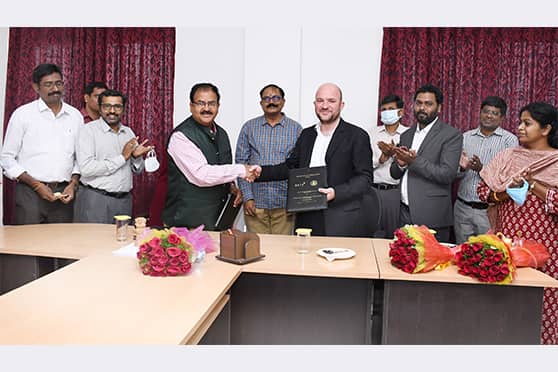NIT AP partners with BETA CAE Systems to offer training in Computer-aided Engineering


National Institute of Technology (NIT) Andhra Pradesh, and BETA CAE Systems, signed a memorandum of understanding (MoU) on March 2 to offer BTech and MTech students guidance in learning, practicing, and applying their abilities in several mechanical engineering areas.
BETA CAE Systems with NIT Andhra Pradesh to provide students with industry-level information and prepare them to enter the engineering simulation employment market by training students of the institute on ANSA pre-processor and META post-processor.
This partnership will provide NIT Andhra Pradesh students with practical experience and exposure to the latest innovations and software tools. It will also help them in the field of engineering simulation in applications relevant to their studies required for the job market skills set.
The 180 hours of syllabi course will be designed to help bridge the gap between academic education and industry’s skills and knowledge demand. It will comprise pre-and post-processor software training. The course will start in the third year of the studies and end in the final year of the Bachelor of Engineering studies.
C S P Rao, director, NIT Andhra Pradesh, said, “The institute has invited and requested the BETA CEA Systems to support its efforts in the holistic training of our students and faculties by sharing the industry’s experience in its field of research. The Company and the Institute may further identify and formulate appropriate programs to train the students of the Institute to acquire practical skills to complement their academic foundations with the purpose of improving their employment potential.”
Stavros Kleidarias, CEO, BETA CAE Systems India, spoke of the collaboration, “Both parties wish to execute a design course outlining with their respective voluntary understanding of how the significant industry expertise and experience of the Company can complement the activities of the Institute. The Institute and the Company may explore opportunities to conduct academic conferences, seminars and workshops in order to complement and enhance the skill set of the Institute’s students in the field of Computer Aided Engineering (CAE).”